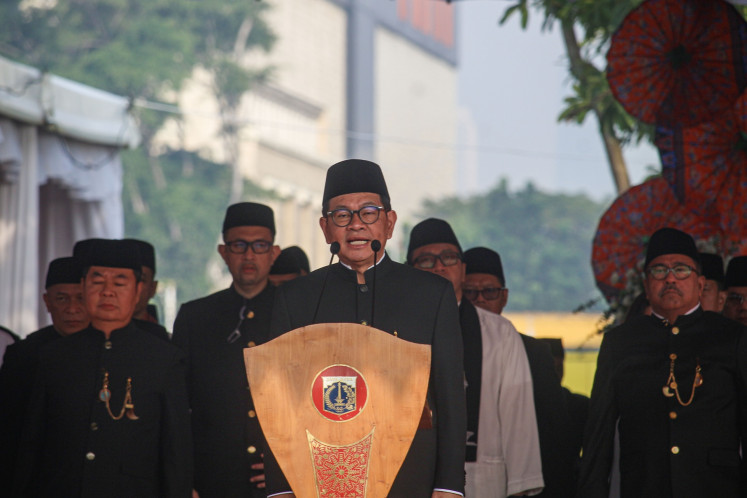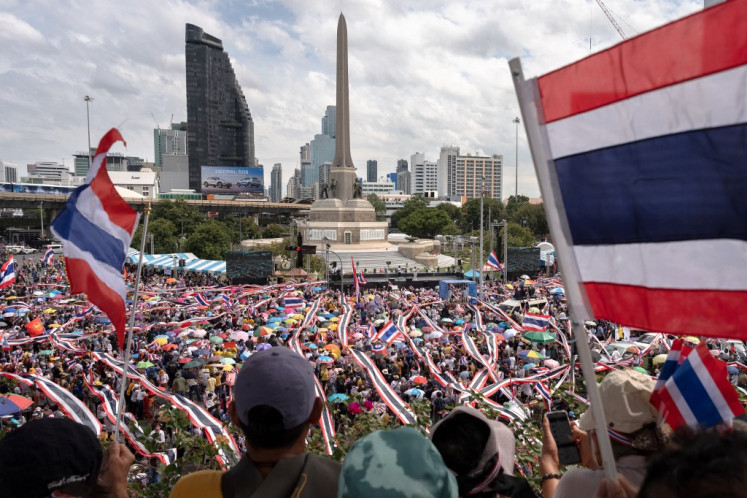Popular Reads
Top Results
Can't find what you're looking for?
View all search resultsPopular Reads
Top Results
Can't find what you're looking for?
View all search resultsBeneficial ownership on the radar
The government has issued the long-awaited Presidential Decree No
Change text size
Gift Premium Articles
to Anyone

T
he government has issued the long-awaited Presidential Decree No. 13/2018 on beneficial ownership, which enables authorities to identify the beneficial owners of firms and cooperatives, among other insitutions, to curb money laundering and terrorism funding practices.
The decree, which was signed by President Joko “Jokowi” Widodo on March 1, is also believed provide a legal basis for the tax authority to obtain additional data in its pursuit of recalcitrant taxpayers who benefited from their ownerships of corporations, experts have said.
The rule stipulates that institutions like corporations, foundations, cooperatives, limited partnerships and firm federations are required to submit the identities of their respective beneficial owners to the authorities.
It also obliges the firms to update their beneficial owners’ data annually to the authorities.
The beneficial ownership rule was in line with the recommendations of global group the Financial Action Task Force (FATF), said Dian Ediana Rae, deputy chairman of the Financial Transaction Reports and Analysis Center (PPATK).
He said it was also part of Indonesia’s efforts to join the Automatic Exchange of Information (AEOI), a global initiative to fight tax evasion and tax avoidance.
“[The decree] will change the landscape. Corporations will become more transparent so that it becomes clear who the beneficiaries from the corporations are,” he said in Jakarta on Wednesday, applauding Jokowi for issuing the decree.
Before the issuance of the decree, Dian said the PPATK had only been able to identify the beneficial owners of several companies through numerous investigation processes.
“Now, we know from the beginning who the beneficial owners [of corporations] are,” he said, adding that the PPATK, along with the Law and Human Rights and Finance ministries, would soon issue derivative regulations detailing the technical aspects of the decree.
According to the decree, beneficial owners are those who receive — both directly and indirectly — the ultimate benefits from corporations and have the power to appoint or dismiss the board of directors in the said companies.
In addition to possessing the power to control the institutions, beneficial owners are also identified as those who own more than 25 percent of the corporations’ capital or receive more than 25 percent of the corporations’ profits.
The decree was one of the government’s latest moves in its efforts to comply with the requirements set by the Global Forum, a team under the Organization for Economic Cooperation and Development (OECD) that supervises the implementation of AEOI.
Indonesia is set to fully participate in the AEOI by September this year to enable its tax office to exchange data on the financial accounts of taxpayers with other tax authorities under the OECD. The country is also set to begin exchanging information for Indonesian domestic banks customers by April.
Tax Directorate General spokesman Hestu Yoga Saksama said the decree would prevent Indonesia from being judged as non-compliant as the country could provide beneficial owner information, which was one of the compliance aspects assessed by the OECD’s Global Forum.
Bawono Kristiaji, a researcher at the Danny Darussalam Tax Center (DDTC), welcomed the decree, saying it would help tax authorities prevent tax avoidance and tax evasion as it would be more difficult for uncooperative taxpayers to hide from their responsibilities, therefore increasing taxpayer compliance.
He said beneficial owners sometimes chose to evade or avoid their tax obligations, pointing out that the practice of hiding the information of beneficial owners was closely related to illicit financial flows to outside the jurisdiction of a country, often with the intention of evading taxes.
Bawono cited data from Global Financial Integrity, a Washington D.C.-based non-profit research organization, which estimated that there were at least US$18.07 million in illicit financial outflows from Indonesia between 2003 and 2014.









